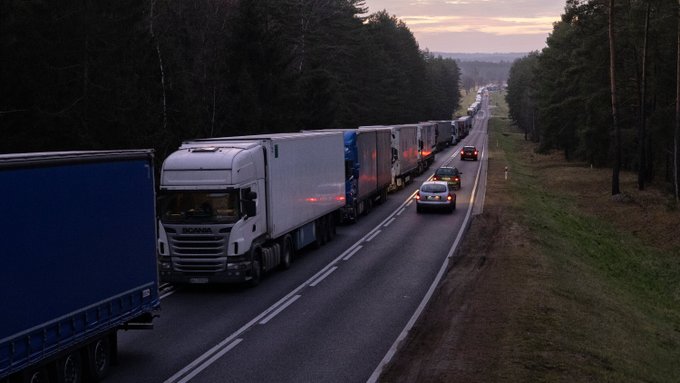
Transport industry barely afloat due to labour shortages and soaring fuel prices
The war situation in Ukraine, the economic sanctions and rising inflation have driven many shipping companies to the brink of bankruptcy. Labour shortages and skyrocketing energy prices have forced companies to work for higher fees leading to a drop in orders.
Land transport on the brink
Transport industry was just about to get back on track after the economic fallout induced by the coronavirus pandemic when it was hit by another crisis. The last few months has seen inflation rising sharply in the global economy leading to skyrocketing energy and fuel prices, exacerbated by the outbreak of the war in Ukraine. Nearly everyone can remember how quickly a situation can develop in which one day supermarkets don’t get enough goods delivered, as that’s exactly what happened after Brexit. Suddenly, several thousand trucks went missing from the logistics chain because of driver shortages. And history has repeated itself within a brief period, as the sector is grappling with massive shortfalls workforce supply once again. Currently, tens of thousands of Ukrainian truck drivers are absent from the industry, with transport companies finding it impossible to plug the gap.
Like many firms in the industry, Christopher Schuldes, a freight forwarder from Seeheim-Jugenheim in Hessen, is struggling with difficulties day after day, the German paper Tagesschau writes. The businessman is desperately looking for drivers to pilot his 30 trucks. „There’s a truck in the yard now because the driver has called in sick,” he told the paper, adding that there is no replacement at all and that they were glad that „two former employees have voluntarily come back from retirement, otherwise two more trucks would not be delivering”. Christopher Schuldes is even more concerned about skyrocketing fuel prices. Increasing petrol and diesel prices are driving transport costs up. His 40-tonne trucks consume about 30 litres of diesel fuel per 100 kilometres, which, calculating with today’s prices, almost doubles the cost of a route compared to a few months ago. Haulers are therefore forced to increase their prices to prevent losses. If, however, companies transport at a higher price, clients order less goods, which raises further problems. In addition, as transportation is often timed to ensure that the shipped goods are transferred right onto the production line, all such delays cause interruptions in the production process, which may lead to supply problems in the region.
Airlines are increasingly impacted by the crisis and the war
Intercontinental transportation by air is also significantly affected by the global situation. Russian companies banned from European Union airspace are no longer available, while Western airlines cannot use the airspace over the world’s largest country. Passenger and cargo flights to Asia thus have to travel on additional southern routes to avoid Russian airspace. According to Lufthansa Cargo, the length of flights from Central Europe to Japan, Korea and China may go up by several hours, which significantly increases costs. The fact that fuel is much more expensive than it was a few months ago is an additional problem.
There are airlines that have withdrawn their business forecasts for 2022 due to the sanctions. With the circumvention of Russian airspace, the operation of most passenger and cargo flights to Asia are no longer economical. It is the airlines of Arab countries which can benefit the most from Western sanctions. The Emirates and Qatar airlines, for example, can continue to use Russian airspace along with Chinese companies. In addition, they do not even have to change their links to the Far East due to the favourable geographical location of their hubs.
Tags:

